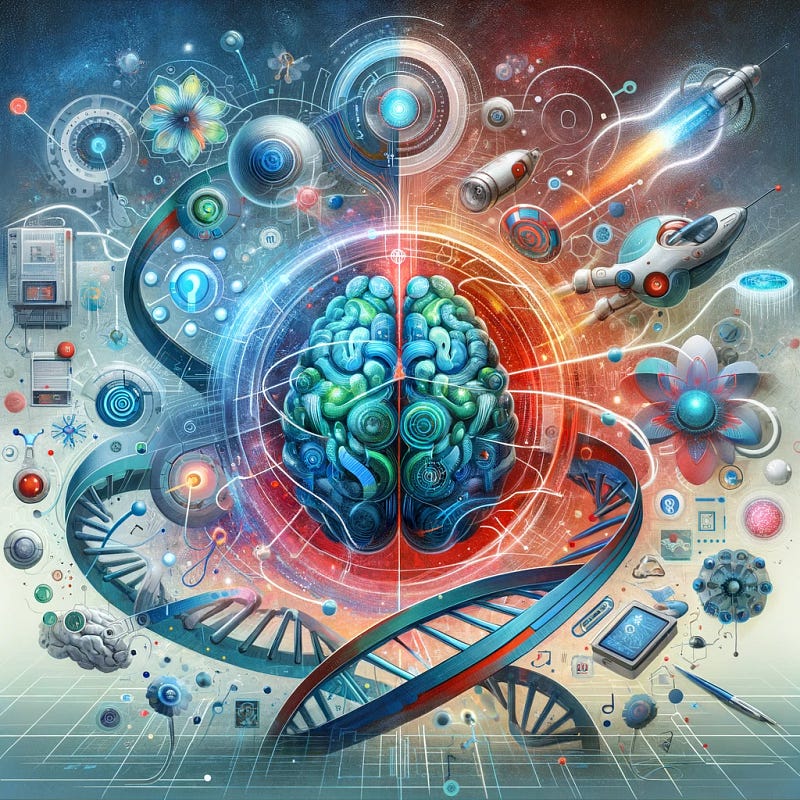AI is Doing the Impossible By Turning Brainwaves into Speech
AI is being used to help stroke victims regain their ability to communicate in the most unlikely of ways. Here’s how it works.

Artificial intelligence is slowly working its way deeper into the practice of medicine in a number of ways.
A group of researchers in the Netherlands may, however, have developed one of the most intriguing implementations of them all. Their paper, which will be linked at the bottom of this article, was published in the Journal of Neural Engineering and outlines their method for using AI to predict speech based solely on neural activity.
This technology is being produced primarily for stroke victims who suffer from paralysis, which prevents them from speaking. However, there are many other potential use cases, such as patients with motor neuron disease.
Why Stroke Victims?
Given our ever-increasing understanding of the human body, you would assume that strokes are becoming less and less common. However, quite startlingly, this is not the case.
According to the CDC, over 795,000 people will suffer from a stroke annually in the United States alone.
While these strokes have the potential to be fatal, even patients who live must suffer from the long-term consequences that can be caused by them. For this reason, the CDC lists strokes as a “leading cause of serious long-term disability.”

As referenced in the figure above, about a third of these victims will suffer some loss of speech. However, we must make an important distinction here.
Strokes can prevent us from speaking due to two main reasons. Firstly, aphasia, which is caused by damage to the areas of the brain that handle language. This means even the brain waves being used to create speech are damaged and are, unfortunately, unusable by the method described in this article.
However, there is a second potential cause referred to as dysarthria. This is significantly more relevant to our discussion as it doesn't affect our brain's ability to create speech but instead affects our ability to move our mouths as effectively or, in some cases, at all.
This effect can be due to either complete or partial paralysis or even just muscle weakness following a stroke.
Imagine how frightening it must be to wake up from a stroke having lost the ability to move and, with it, the ability to communicate with the rest of the world.
This is a frightening reality for many stroke victims around the globe and highlights what an incredible quality of life improvement this technology represents.
Giving Patients the Ability to Communicate
Since patients with dysarthria are unable to successfully turn this neural activity into discernible speech, the researchers can use high-density electrocardiography to record this brain activity.
From there, the researchers developed an AI-based technique to interpret the brain signals that control movements necessary for speech. This quite literally turns the neural activity into words.
The program, despite having some limitations, has 92–100% single-word accuracy. The reason the accuracy is measured as single-word accuracy is due to the fact that the research so far has focused on being able to predict 12 words said aloud by healthy participants. It has yet to undergo testing on full sentences or paragraphs.
It is important to note that this program can not tell what you are thinking, nor would that be desired for this application. Instead, the device can read the signals your brain is sending to produce different sounds. Through the use of AI, these signals can be decoded into words.
An Incredible Accomplishment
I feel as though this is a perfect example of AI bringing to life futuristic tech that almost doesn't seem possible.
It is the kind of tech that you thought about as a kid, the kind you wondered if it even could exist, the kind you dreamed about existing.
In a way, this technology really is like something out of a dream. Being able to turn someone's neural activity into words is not only an incredible accomplishment for mankind, but it is also a stepping stone for more advanced brain interfacing technologies.
In addition to this, it shines a spotlight on the incredible powers of AI, both in the field of medicine and beyond, highlighting its ability to improve our lives, which simply would not be possible without its existence.
What's next in the world of Brain-Computer Interfacing? I want to hear what types of tech you want to see produced in this fascinating domain of science! What concerns do you have about it? Leave a comment below!
As promised, here is the link to the research paper.
Thank you so much for reading this article all the way to the end. If you enjoyed it, please consider leaving a clap and checking out some of my other articles. If you have any questions or anything to add to the conversation, please leave a comment! Thanks again!
If you enjoyed this article, you should definitely check out the article I did on some of the ethical concerns of AI.
